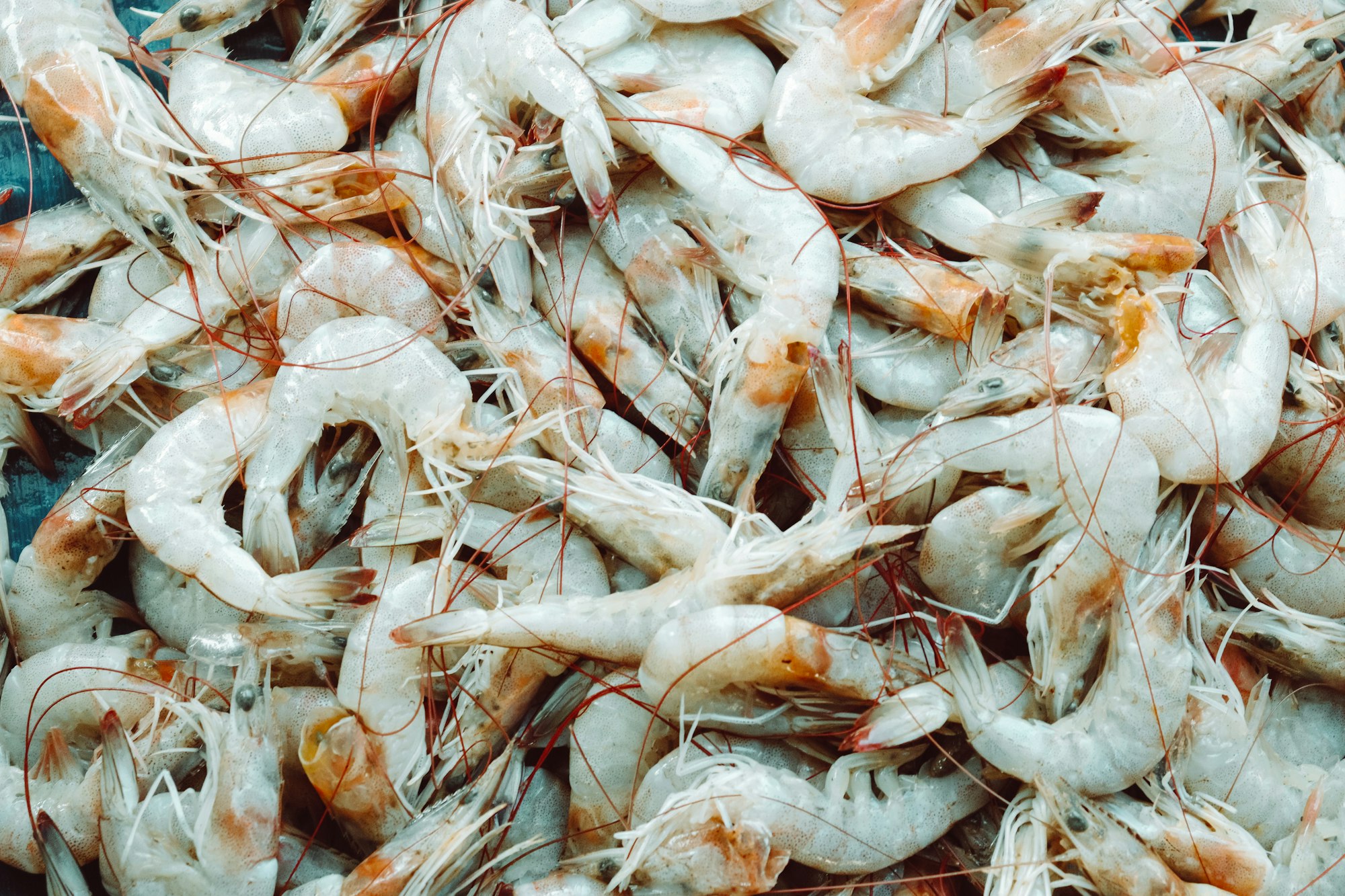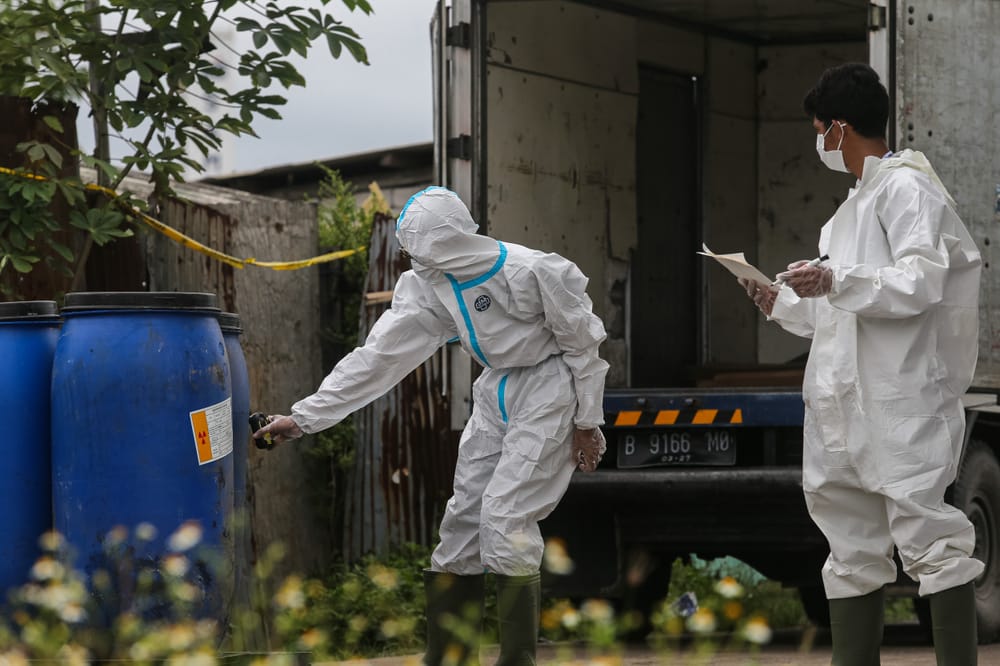The United States (US) government, through the Food and Drug Administration (FDA), has established a new policy after detecting the radioactive element cesium-137 (Cs-137) in several shrimp products originating from Indonesia. The findings prompted the US food agency to issue an Import Alert containing certification requirements for products from areas considered high-risk.
This case originated from the discovery of Cs-137 in frozen shrimp processed at PT Bahari Makmur Sejati (BMS) in Banten. The company is now on the FDA's strict supervision list or red list. The agency stated that radioactive exposure in Indonesia may have originated from a contamination incident in Serpong in 2020 and residual particles from a metal smelting facility in the Cikande industrial area, which is being investigated by the Nuclear Energy Regulatory Agency.
In its official statement, the FDA emphasized that the step was taken to protect American consumers and ensure the safety of imported food. The agency also mentioned Indonesia as one of the regions that requires increased risk-based supervision, in line with the mandate of the Food Safety Modernization Act (FSMA), which emphasizes prevention rather than inspection after an incident occurs.
Starting October 31, 2025, the FDA will require import certification for every shrimp shipment from the islands of Java and Lampung Province, regions categorized as high-risk. This certification can only be issued by an official Indonesian government agency appointed by the FDA as a Certifying Entity. Without this certificate, every shipment to America is at risk of being detained or even refused entry to the port.
In response, the Chairman of the Shrimp Club Indonesia (SCI), Andi Tamsil, believes that certification is indeed very important to resolve the issue. However, he revealed that he has not received detailed information from the government regarding the process.
Until now, Andi said, the government has not appointed a body or institution that will act as a certifier. "We also don't know whether the government is ready in this regard and which institutions are competent to do that," he said.
On the other hand, Andi assesses that there are concerns among business actors if the certification process is actually implemented. Andi assesses that certification has the potential to make bureaucracy more complicated and increase export costs. With certification, every shrimp to be exported to America must go through inspection first.
"From our data, we can send 2000 containers per year. So how many containers must be inspected in a day? Is it possible? That's why it must be done carefully and involve all related parties," he said.
This case has indeed shaken the domestic shrimp industry, because America is the main export market for Indonesian shrimp. Andi said that in 2024 it reached 63.7% of the total national shrimp exports. Referring to data from the Ministry of Maritime Affairs and Fisheries, that figure is equivalent to 135 thousand tons with a value of US$ 1.07 billion.
As a result, Andi said, there was a decrease in national exports of 30 to 40%. In addition, because many shrimp were returned to Indonesia, the amount of shrimp supply piled up.
"The price also dropped, especially in places dominated by BMS, such as in Medan," said Andi. He added that there are currently 32 containers that have been returned from America and the number continues to grow.
While waiting for the certification process, SCI is trying and maximizing exports to other countries as alternative markets. Andi said he is trying to maximize shrimp exports to China. Because, according to Andi, the Chinese market is relatively large. So far, Indonesian shrimp exports to China are only 2%. This is important to do as an anticipatory step if the problem in America is not resolved.
In agreement with Andi, the spokesperson for the Association of Indonesian Fishery Product Processing and Marketing Producers (AP5I), Saut Hutagalung, assesses that market diversification to countries other than America is indeed very possible, although not easy. Because, according to him, the products exported to America are not only frozen shrimp, but customized shrimp that have been adjusted to the requests of buyers in America.
On the other hand, Saut highlighted the clarity of the certification which has a deadline. Saut assesses that it is not clear whether the date of October 31, 2025 set by the FDA is the departure deadline from Indonesia or the arrival at American ports.
"If that date is the arrival time, it's impossible. That means there are only 23 days left before it is dispatched. Meanwhile, the shipping time needed to get there can be 30 to 60 days," he said.
Saut added that the government must also be prepared to follow the security standards set by the United States after the Cs-137 case. "If it is said to be safe for domestic consumption, that's fine. But don't forget, we are talking about exports to America. Simply, if we want to trade in someone else's place, we follow their rules," Saut asserted.
Maintain reputation
Meanwhile, Associate Director of Aquafeed, Haris Muhtadi, believes that the Cs-137 case is isolated and does not reflect the overall condition of the Indonesian shrimp industry. He emphasized that the source of contamination is in a limited area, not from the aquaculture supply chain such as feed, ponds, or processing. Therefore, according to him, the government needs to localize the problem so as not to give the impression that all Indonesian fishery products are exposed.
Haris said that various associations, including the feed and shrimp processing industries, have coordinated with the government to ensure that the certification process is carried out immediately. He assessed that this step is important to restore the trust of the American market, provided that the certification mechanism is carried out credibly and efficiently. "The problem is only in one spot, but it's as if it's all of Indonesia," he said.
He also assessed that the government needs to act quickly so that the industry does not lose momentum. According to him, delays in carrying out certification could have a chain effect on exports and market confidence. Haris emphasized that this case should be a lesson to strengthen the food safety system without damaging the reputation of the national shrimp sector, which has so far been considered to comply with international standards.
Read also:

Researcher at the Department of Economics, Centre for Strategic and International Studies (CSIS), Deni Friawan, assessed that the FDA's policy requiring import certification for Indonesian shrimp is reasonable, considering the high radioactive risk.
"It is very unfortunate because it has a direct impact on Indonesian products abroad," he said. Deni said that declining market confidence can suppress demand and weaken national exports amidst an economic situation that has not fully recovered.
Deni believes that the concerns of business actors regarding increasingly complicated bureaucracy and additional costs due to certification are reasonable. However, Deni emphasized that this is an inevitable consequence after the case emerged. Deni said that the government needs to reduce the burden on business actors by accelerating the inspection process or helping to bear the certification costs so that exports are not held back.
Deni emphasized that the government's quick steps to localize the source of pollution and convey the results of its handling to the public and international trading partners are very important to restore market confidence.
"We often consider the health and safety standards applied by developed countries as non-tariff barriers, even though most of them have a basis for consumer protection. The government and business actors must be aware and fulfill that," he said.





